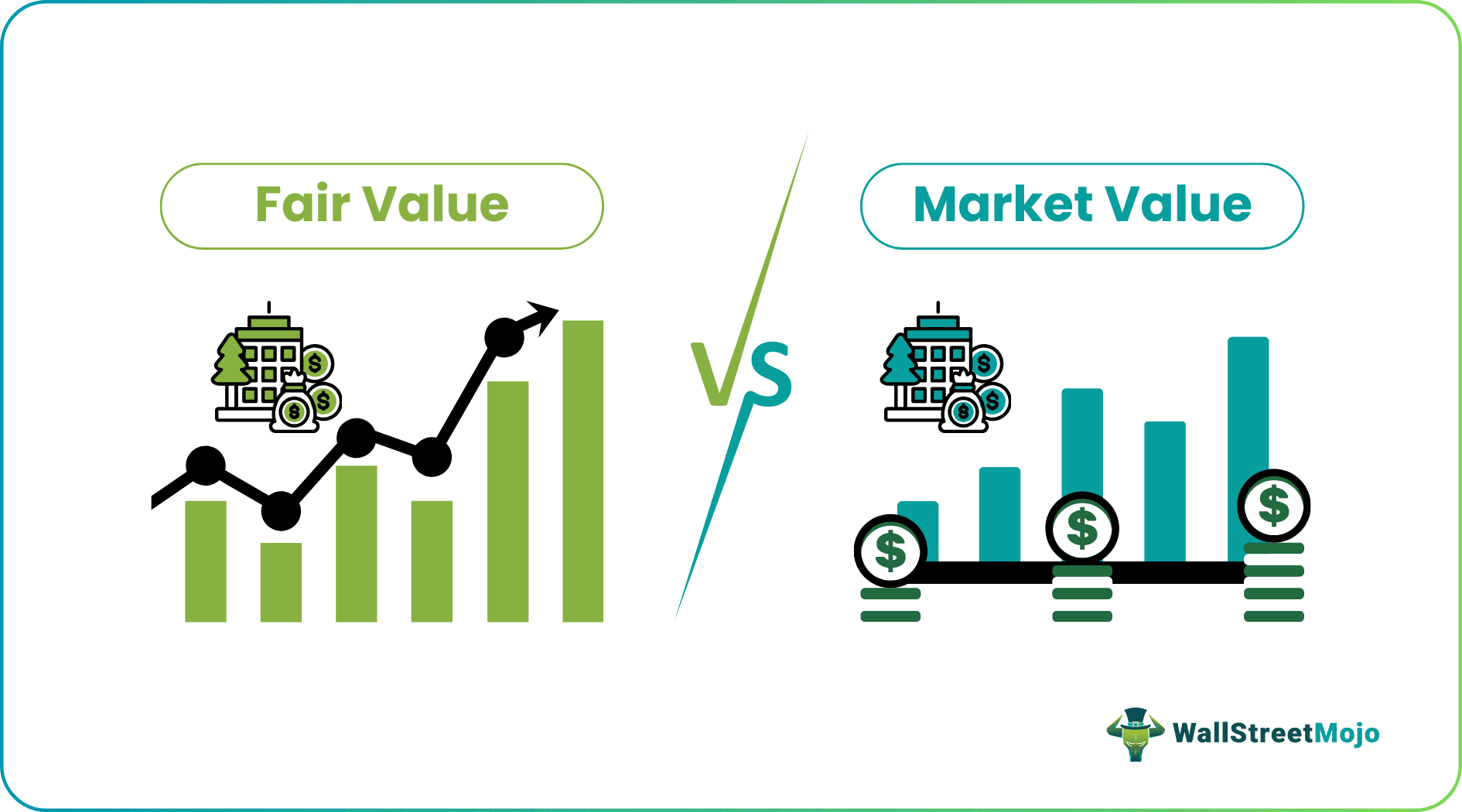Table Of Contents
Difference Between Fair Value and Market value
The fair value of the stock is a subjective term calculated using the current financial statements, market position, and possible growth value from a set of metrics. In contrast, the market value is the current share price at which the stock or asset is traded.
Fair value is the most used term for valuing an asset. Fair value can be best defined as the value by which an asset changes hands between two parties. It is more likely traced to the fair value of a share price. On the other hand, the market value of assets or anything can be defined as the market’s value for it.

Fair Value vs. Market Value Infographics
Let’s see the top differences between fair value vs. market value in detail.

Fair Value vs Market Value Video Explanation
Key Differences
- Market value is not an appropriate method to judge the true value of an asset as it is highly dependent on the forces of demand and supply, which are very fluctuating and are dynamic. On the contrary, fair value is not dependent on the strengths of any market demand and supply and is purely dependent on the asset’s true value.
- Another significant difference is that the asset’s fair value is always adjusted for impairment because the property arrives at the true value. On the other hand, market value is the value that is determined by the two parties when they meet. After negotiation, they arrive at a price that is not always logically driven and often irrational.
- The fair value model is often the model of the fundamental valuation of an asset or a company etc. The actual value is the fair value and what the asset should be worth. Market value is decided by the market and is not derived fundamentally.
Fair Value vs. Market Value Comparative Table
Fair Value
- Fair value refers to the actual worth of an asset, which is derived fundamentally and is not determined by the factors of any market forces.
- Fair value is most commonly used in the market instead of any other valuation method. As in the fair value, there is an accuracy of the valuation of the asset and is a true measure of the technique.
- An asset's fair value often remains the same, and it does not fluctuate more frequently than the market value.
- Fair value accounting measure is globally accepted and is also accepted in the International Financial Reporting Standards (IFRS) and generally accepted accounting principles (GAAP)
Market Value
- Market value is solely determined by the factors of the demand and supply, and it is the value that is not determined by the fundamental of an asset.
- Market value is not the most common valuation method.
- The supply and demand forces determine market value, which causes it to fluctuate.
- The market value valuation method is the one that is not frequently used and is not globally acceptable.
Conclusion
Understanding the differences between the fair and the market value is significant, especially in the valuation industry. A valuation firm will try to value the value of an asset through various methods to decide which deal is a close fit for the asset to sell at a price that correctly reflects the asset’s value.
Often for an asset with no open market, determining the asset’s fair value often becomes difficult and costly. However, besides its minor shortcomings, the appropriate valuation methodology supersedes the other valuation methods, and it is usually considered as best practice in the industry.

